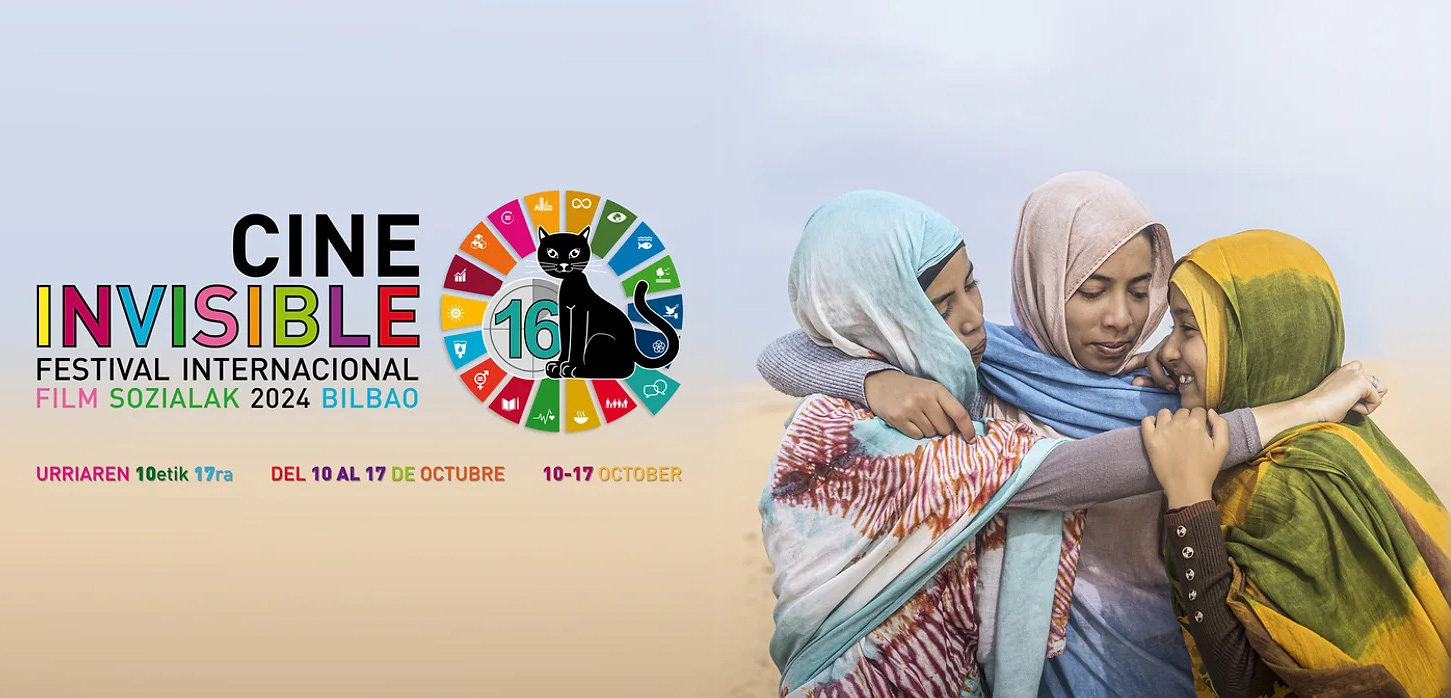
- From 10 to 17 October, ZINEMA Ikusezinak will show in Bilbao 81 films that encourage reflection and critical awareness on important and topical social issues. Organized by the Non-Governmental Development Organization “KDC” (Culture, Communication and Development).

The name of the festival is not by chance: “I think it’s a paradox. Film is something you see, but this festival itself is invisible. It makes you see what you hide, name what you don't want to identify and silence everything. I think it is a very valuable activity,” said Roberto Vega (El Salvador), representative of the educational institution Equipo Corn.
The inaugural gala will take place on 10 October, at 19:30 a.m., and will feature violinist Unai Celaya and several actors. The final gala will take place on October 17 at 19:30 hours and will feature the performance of Senegal’s contemporary dance dancers and the musical group The Cherry Boppers. Both will be held in the Azkuna ZENTROA auditorium.
“The festival is also composed of 19 schools, guests from Cuba, Senegal and other countries,” said Ainhoa Pérez, a technique of Education for Social Transformation of “KDC”. Among the guests is Clara Morales (Mexico), coordinator and delegate of Ojo de Agua Comunicación Indígena, who has said that working in the centers is very enriching for her: “It allows us to leave a grain of everything we do.” Roberto Vega adds that the KDC strategy is very valuable: “In these spaces we can sow the seed so that these young students can see other realities.
Space for reflection and social change
Another year, different themes will be addressed, all of them focused on social demands: armed conflicts, LGTBIQ+, environmental environment, defense of human rights, gender equality, interculturality, Euskera, artistic creation…
Teresa Laespada, a member of the Provincial Council for Employment, Social Cohesion and Equality of the Provincial Council of Bizkaia, has pointed out that the looks of the films presented at the festival move away from the commercial circuits and look at other things, other looks, another way of understanding life. “I believe that this builds the critical thinking of society, and it is essential to see cinema in a different way. Perhaps the KCD is one of the few who claim it,” said Laespada.
The director of the Area of Human Rights, Coexistence, Cooperation and Immigration of the City Council of Bilbao, Monika Hernando, has considered it essential to find spaces for dialogue and reflection on this topic. “More work needs to be done on education to promote peace, sensitization, tolerance, coexistence and empathy,” said Hernando, who is what the festival does: “It helps us to reflect, denounce and deal with all situations that create poverty, discrimination and injustice that violate human rights.”